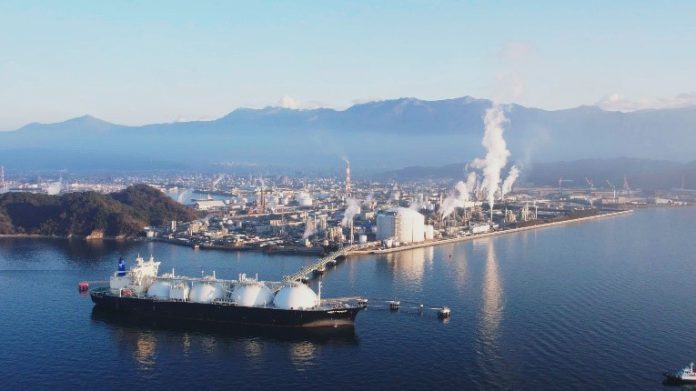Japan paid about $6.08 billion for its liquefied natural gas (LNG) imports in August as prices continue to rise.
The world’s top LNG importer this year said its LNG imports dropped by 0.4 percent year-on-year in August to about 6.27 million tonnes, according to the provisional data released by the country’s Ministry of Finance.
In July, Japan’s LNG imports also decreased by 0.4 percent to about 6.16 million tonnes of LNG.
On the other side, Japan’s coal imports for power generation rose year-on-year in August.
Coal imports rose by 16.3 percent to 12.2 million tonnes, the data shows.
Prices surge
According to the preliminary data, the August LNG import bill of about $6.08 billion increased by 140.1 percent when compared to the same month last year.
State-run Japan Oil, Gas and Metals National Corp (JOGMEC) said earlier this month that it did not publish data for spot LNG prices in August as there were less than two companies that imported spot LNG during the month.
The average contract-based price for spot LNG cargoes shipped to Japan in July reached $32.8 per mmBtu.
Spot LNG prices remain very high and the JKM LNG price price for October is currently trading at about $53 per mmBtu.
Russian LNG deliveries up
As per LNG shipments to Japan in August, deliveries from Asia from countries such as Malaysia and Indonesia dropped by 14.6 percent to 1.24 million tonnes, the ministry’s data shows.
Middle East LNG shipments from countries such Qatar were down by 28.4 percent to 900,000 tonnes.
Additionally, shipments from Russia rose by 211.2 percent to 450,000 tonnes, while US deliveries decreased by 38.4 percent to 333,000 tonnes.
World’s top LNG importer
China became the world’s largest LNG importer last year, overtaking Japan by more than four million tonnes, but the roles changed again this year and Japan continues to be the world’s top LNG importer.
With the August figure, Japan took about 49.95 million tonnes of LNG in the January-August period.
China is yet to release the official numbers for August. The country imported about 35.93 million tonnes in January-July, down by more than 7.7 million tonnes when compared to Japan’s LNG imports.

